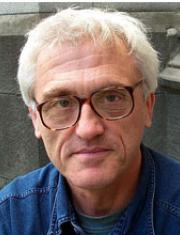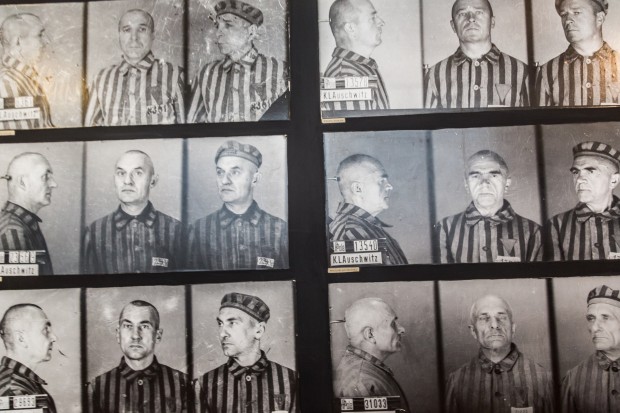19 Apr 2016 | Academic Freedom, Europe and Central Asia, mobile, News, Poland

Jan Gross (Princeton)
A Polish prosecutor has interrogated Jan Gross, a Polish-American professor of history at Princeton University, to determine whether claims he made that Poles “had killed more Jews than the Germans” during World War II constitute a crime.
Insulting the nation is punishable by up to three years in jail in Poland.
“The ability to question established narratives is vital to academic freedom and a free and progressive society,” Jodie Ginsberg, CEO of Index on Censorship, said.
Gross, who has researched Polish complicity in the Holocaust, said he was questioned as a witness for five hours on Tuesday 12 April in the district attorney’s office in Katowice but has not been charged with a crime.
Complaints were filed by Polish citizens over Gross’ claims, which were made in an article published in Project Syndicate last September. In it, the historian also argued that Poland’s opposition to accepting asylum seekers could be linked to its “murderous past”.
“I said straight out that I was not going to offend the Polish nation,” Gross told the Associated Press regarding his recent questioning. “I tried to make people aware of the problem of refugees in Europe. I’m just telling the truth, and the truth sometimes has the effect of shock on people who previously were not aware of the case.”
In February Index reported that Polish President Andrzej Duda considered stripping Gross of an Order of Merit over his academic work on Polish anti-Semitism. Gross outlined in his 2001 book Neighbors that the massacre of some 1,600 Jews from the Polish village of Jedwabne in July 1941 was committed by Poles, not Nazis.
11 Apr 2016 | Magazine, Volume 45.01 Spring 2016 Extras

Kemel Aydogan’s production of A Midsummer Night’s Dream in Turkey. Credit: Mehmet Çakici
Hitler was a Shakespeare fan; Stalin feared Hamlet; Othello broke ground in apartheid-era South Africa; and Brazil’s current political crisis can be reflected by Julius Caesar. Across the world different Shakespearean plays have different significance and power. The latest issue of Index on Censorship magazine, a Shakespeare special to mark the 400th anniversary of his death, takes a global look at the playwright’s influence, explores how censors have dealt with his works and also how performances have been used to tackle subjects that might otherwise have been off limits. Below some of our writers talk about some of the most controversial performances and their consequences.
(For the more on the rest of the magazine, see full contents and subscription details here.)
Kaya Genç on A Midsummer’s Night’s Dream in Turkey
“When Turkish poet Can Yücel translated A Midsummer’s Night Dream, he saw the potential to reflect Turkey’s authoritarian climate in a way that would pass under the radar of the military intelligence’s hardworking censors. Like lovers in Shakespeare’s comedy who are tricked by fairies into falling in love with characters they actually dislike, his adaptation [which was staged in 1981 and led to the arrests of many of the actors] drew on the idea that Turkey’s people were forced by the state to love the authority figures that oppressed them the most. They were subjugated by the military patriarchy, the same way the play’s female and artisan characters were subjugated by Athenian patriarchy.
Kemal Aydoğan, the director of the latest Turkish adaptation of A Midsummer Night’s Dream, described the work as ‘one of the most political plays ever written’. For Aydoğan, the scene in which the Amazonian queen Hippolyta is subjugated and taken hostage by the Theseus marks a turning point in the play. ‘That Hermia is not allowed to marry the man she loves but has to wed the man assigned to her by her father is another sign of women’s subjugation by men,’ he said. This, according to Aydoğan, is sadly familiar terrain for Turkey where women are frequently told by male politicians to know their place, keep silent and do as they are told.’ ”
Claire Rigby on Julius Caesar in Brazil
“In a Brazil seething with political intrigue, in which the impeachment proceedings currently facing President Dilma Rousseff are just the most visible tip of a profound turbulence which has gripped the country since her re-election in October 2014, director Roberto Alvim’s 2015 adaptation of Julius Caesar was inspired by a televised presidential debate he saw in the final days of the election campaign, in which centre-left Rousseff faced off against her centre-right opponent Aécio Neves. ‘I watched the debate as it became utterly polarised between Dilma and Aécio, and the famous clash between Mark Antony and Brutus instantly came to mind,’ he said. ‘It was the idea that the same facts can be drawn in such completely different ways by the power of speech: the power of the word to reframe the facts, and its central importance in the political game.’ ”
György Spiró on Richard III in Hungary
“Richard III was staged in Kaposvár, which had Hungary’s very best theatre at the time. This was 1982.
Charges were brought against the production, because the Earl of Richmond wore dark glasses. A few weeks earlier, on 13 December 1981, General Wojciech Jaruzelski declared a state of emergency in Poland. For health reasons he wore sunglasses every time he appeared in public.”
Simon Callow on Hamlet under Stalin and the Nazis
“In 1941, Joseph Stalin banned Hamlet. The historian Arthur Mendel wrote: ‘The very idea of showing on the stage a thoughtful, reflective hero who took nothing on faith, who intently scrutinized the life around him in an effort to discover for himself, without outside ‘prompting,’ the reasons for its defects, separating truth from falsehood, the very idea seemed almost ‘criminal’.’ Having Hamlet suppressed must have been a nasty shock for Russians: at least since the times of novelist and short story writer Ivan Turgenev, the Danish Prince had been identified with the Russian soul. Ten years earlier, Adolf Hitler had claimed the play as quintessentially Aryan, and described Nazi Germany as resembling Elizabethan England, in its youthfulness and vitality (unlike the allegedly decadent and moribund British Empire). In his Germany, Hamlet was reimagined as a proto-German warrior. Only weeks after Hitler took power in 1933 an official party publication appeared titled Shakespeare – A Germanic Writer.”
Natasha Joseph on Othello in South Africa
“In 1987, actress and director Janet Suzman decided to stage Othello in her native South Africa, bringing ‘the moor of Venice’ to life at Johannesburg’s iconic Market Theatre. It was just two years since Prime Minister PW Botha had repealed one of apartheid’s most reviled laws, the Immorality Act, which banned sexual relationships between people of different races. Even without the legislation, many white South Africans baulked at the idea of interracial desire. No wonder, then, that Suzman’s production attracted what she has described as ‘millions of bags full of hate letters from people who thought that this was an outrage’.
But in a country famous for sweeping censorship and restrictions on freedom of movement, speech and association, the play was not banned. Why? Because the apartheid government ‘would have been the laughing stock of the world if they had banned Shakespeare’, Suzman told Index on Censorship. ‘Any government would be really embarrassed to ban Shakespeare. The apartheid government was frightened of ridicule. Everyone is frightened of laughter.’ ”
For more articles on Shakespeare’s battle with power around the world, see our latest magazine. Order your copy here, or take out a digital subscription via Exact Editions (just £18 for the year, with a free trial). Copies are also available in excellent bookshops including at the BFI, Mag Culture and Serpentine Gallery (London), News from Nowhere (Liverpool), Home (Manchester) and on Amazon or a digital magazine on exacteditions.com. Each magazine sale helps Index on Censorship fight for free expression worldwide.
24 Feb 2016 | Academic Freedom, Europe and Central Asia, mobile, News, Poland

Still from an Auschwitz exhibition, 22 July 2014 in Oswiecim, Poland
When discussing academic freedom more than a century ago, German sociologist and philosopher Max Weber wrote: “The first task of a competent teacher is to teach his students to acknowledge inconvenient facts.” In Poland today, history appears to be an inconvenience for the ruling Law and Justice (PiS) party, which is introducing legislation to punish the use of the term “Polish death camps”.
The Polish justice minister Zbigniew Ziobro announced earlier this month that the use of the phrase in reference to wartime Nazi concentration camps in Poland could now be punishable with up to five years in prison. If enacted, Poland would find itself in the unique position of being a country where both denying and discussing the Holocaust could land you in trouble with the law. Holocaust denial has been outlawed in Poland — under punishment of three years “deprivation of liberty” — since 1998.
Any suggestion of Polish complicity in Nazi war crimes against Jews brings with it, in the party’s own words, a “humiliation of the Polish nation”.
Of course, Poland was an occupied country which suffered terribly under Nazi Germany, so any talk of acquiescence understandably hits a nerve. As all good history students know, however, the discipline has its ambiguities and competing theories, from the acclaimed to the crackpot, and singular, simplistic narratives are rare. But few democratic countries in the world punish those who argue unpopular historical positions. Which is why legislating against uneasy truths is the same as legislating against academic freedom.
Two recent examples show the Polish government of doing just this. Firstly, Poland’s President Andrzej Duda made public his serious consideration to stripping the Polish-American Princeton professor of history at Princeton University Jan Gross of an Order of Merit — which he received in 1996 both for activities as a dissident in communist Poland in the 1960s and for his scholarship — over his academic work on Polish anti-Semitism. Gross outlined in his 2001 book Neighbors that the massacre of some 1,600 Jews from the Polish village of Jedwabne in July 1941 was committed by Poles, not Nazis. More recently, the historian has claimed that Poles killed more Jews than they did Germans during the war, which prompted the current action against him.
Some who disagree with his arguments have labelled Gross an “enemy” of Poland and a “traitor to the motherland”. The historian has hit back, saying in an interview with the Associated Press: “They want to take [the Order of Merit] away from me for saying what a right-wing, nationalist, xenophobic segment of the population refuses to recognise as facts of history.”
Academics too — Polish and otherwise — have come to his defence. Agata Bielik-Robson, professor of Jewish Studies at Nottingham University, points out that a “democracy has to have a voice of inner criticism”. She is worried that PiS is seeking to do away with such criticism in order “to produce a uniform historical perspective”.
Polish journalist and former activist in the anti-communist Polish trade union Solidarity Konstanty Gebert explained to Index on Censorship that PiS has made “convenient scapegoats” of people like Gross. “PiS is moving fast to reestablish a ‘positive narrative of Polish history’ by breaking with an alleged ‘pedagogy of shame’,” he said.
The party first tried — unsuccessfully — to outlaw the term “Polish death camps” in 2013 when it was in opposition. Should the law now pass, and you need help adhering to the proposed rules, the Auschwitz Museum has released an app to correct any “memory errors” you may experience. It detects thought crimes such as the words “Polish concentration camp” in 16 different languages on your computer, keeping you on the right track with prompts asking if you instead meant to write “German concentration camp”.
Poland may have lurched to the right with the election of PiS last October, but the party’s authoritarianism — from crackdowns on the media to moves to take control of the supreme court — seems positively Soviet in some respects. Attempts to control history, too hark back to the Polish People’s Republic of 1945-1989, when, in the words of Elizabeth Kridl Valkenier in the winter 1985 issue of Slavic Review, “cultural patterns” and “habits of mind” made it impossible to make historical interpretations “alien to that national sense of identity and a methodology at odds with the canons and objective scholarship”.
Gebert sees similarities between current and communist-era propaganda “in the basic formulation that there is nothing to be ashamed of in Polish history, and in Polish-Jewish relations in particular, and in the belief that there is one correct national viewpoint”.
However, now that freedom of speech exists, the government can and are being criticised for their actions. “This puts the government propaganda machine on the defensive,” Gebert said.
Just last week, President Duda spoke against the “defamation” of the Polish people “through the hypocrisy of history and the creation of facts that never took place”. He has made his motives clear: “Today, our great responsibility to create a framework […] with the dual aim of fostering a greater sense of patriotic pride at home while enhancing the country’s image abroad.”
It should be intolerable for the freedoms of any academic subject to be impinged for ideological ends. If academic freedom is to mean anything, it should include the right to tell uneasy truths, get things wrong and have you work challenged by the highest academic standards.
There’s only one place to turn for PiS to find an example of best practice on how to challenge Gross’ research, and that is to the very body the party will grant authority to on deciding on what is and isn’t a breach of the law regarding “Polish death camps”. Poland’s Institute of National Remembrance (IPN) produced several reports between 2000-03 challenging claims in Gross’ book on the Jedwabne massacre. It used research and reason — as opposed to censorship — to make the case that the historian didn’t get all the facts right. It found, for example, that German’s played a bigger part in the slaughter than Gross had claimed, and that the numbers killed were more likely to be around the 340 mark, rather than 1,600.
IPN should tread carefully, though. Any inconvenient truths with the potential to humiliate the Polish people could one day soon see it branded a “traitor”.
Ryan McChrystal is the assistant editor, online at Index on Censorship



